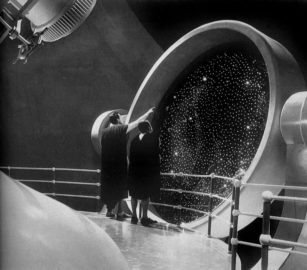Dating back all the way to ancient greek stoic Epictetus, the free will vs determinism debate still rages on. The strict determinist view in philosophy is that we are only acting out complex but predictable chemical reactions in our brain, even though it feels like we are making choices. On the opposite side, people who argue for free will say that we really do have the unpredictable ability to truly make our own choices. That we are free from prior conditioning, at least to some degree. The ideas have come back into the zeitgeist after a study found that brain scans were able to see decisions before test subjects were aware of making them. The question matters because of the implications to how we view morality and the justice system.
In the determinist view, just like any animal, we behave based on certain pre-programmed genetics. Additionally, we have past experiences that shape our decision making. Nature and Nurture. Both of these exist in the past and make up every chemical state in the brain and body. So as the determinists would say, your “choice” is merely a function of the state of your body the moment before you make it. Although it does feel like we are making a decision in thinking. Thinking in and of itself is merely another chemical process where a determination is made. The appeal in the argument for determinism is how pragmatic it is. Viewing everything as a tight mechanical system is clean and satisfying. A modern proponent of this theory is Sam Harris, PhD and host of the Waking Up podcast.
Free will proponents, on the other hand, argue that we can make decisions in a way that is not predetermined nor random. It asserts that there is something special about humans, that our consciousness allows us to make decisions out of sheer will. Many would claim it’s a bit esoteric, but it does seem to align with what many of us feel in day to day decision making. The strongest argument for free will in my opinion is the “preferred states” argument proposed by Stephan Molyneux, software entrepreneur and libertarian philosopher. It’s a bit more meta and abstract than but is compelling nonetheless. It deals with self defeating assertions. As an example, saying the phrase “language is meaningless” self destructs logically because the person speaking it has to assume language does have meaning. Similarly, the argument “there is no free will” relies on a degree of agency by both the proponent and the listener. It presupposes that there is some choice to be made. Making the determinist argument thus is logically invalid. It asserts that there is a “preferred state to the universe”, but there can be no such “correct” view in a deterministic one. Just like there is no “correct” landing spot for a rock that falls down a hill.

Laplace’s Demon first thought up by Pierre-Simon Laplace is a theoretical entity that is able to compute the exact state of the universe, taking into account all minute details, in order to predict the future. Building on this idea, I propose that an enclosed system could be created with an Artificial Intelligence inside it. The future experiment may be useful given only a few assumptions: that an A.I. serves as a perfect representation of a human, and that there is not some other intangible element that makes up a human, such as a soul. Then, a test could provide evidence for or against free will. An A.I. in the simulated room is presented with a number of choices. Once the choice is made, the state of the system could be rewound to the moments before the choice was made and replayed. In this way we could see if the same choice is made again and again. The key advantage to this way of experimenting is that the environment and the A.I. could be perfectly “reset” to the exact previous state multiple times. We could throw in morally pressing conundrums into the experiment, to see how the AI handles them. We could see if there is more or less variation in certain arbitrary choices. If the A.I. continually picks the same choice, it would be strong evidence for determinism because the previous state or simulated “past” always causes one outcome. If the AI picks a distribution of choices, it would at least keep open the possibility that free will is possible. Keen observers will note that randomness does not equal free will. This is true. The model wouldn’t prove free will is happening, it would only open the possibility by providing some evidence. Or vice versa
This of course, hinges on one key future technology: Artificial Intelligence. A good proxy to measure how close we are to creating human equivalent A.I. is modeling the human brain itself. Back in 2014, the K computer of Japan, was the fastest supercomputer at the time. It was able to simulate one second of 1% of human brain activity. While we might seem far off by this measure, it is a huge step in the right direction. The K computer maxes out at about 10 petaflops—a measure of floating point operations per second. The current fastest supercomputer clocks in at 122 petaflops. Or, if we correlate what we could now simulate is about 12% of human brain activity in one second. Link a few of these supercomputers together and we can get even closer to simulating the brain for long periods of time. The main point is that eventually, we will likely be able to simulate human equivalent A.I. Then, we will be able to run free will vs. determinism experiments.


Leave a Reply